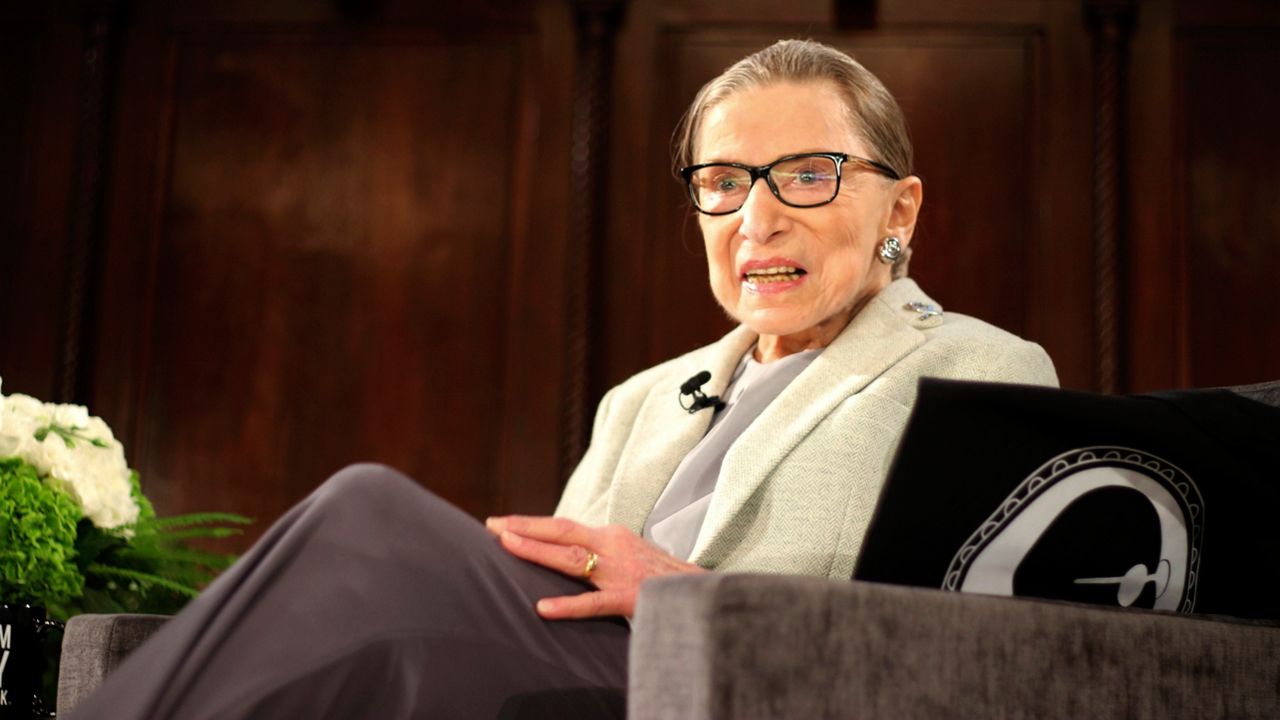The death of Justice Ruth Bader Ginsburg at age 87 amplifies the political tension that has clenched the nation with a grip unseen in perhaps decades.
There are multiple, compounding layers: Ginsburg’s status as a trailblazing icon of the Court’s left; that just over six weeks remain before election day; that Senate Majority Leader Mitch McConnell previously blocked an election-year Supreme Court appointee when Barack Obama was president, under the rationale that voters should first have their say; and that shortly before she died, Ginsburg dictated a statement to be revealed posthumously: that any nomination should be made after Inauguration Day 2021.
"My most fervent wish is that I will not be replaced until a new president is installed," she dictated to her granddaughter, according to NPR.
Along with tributes and curses about 2020, social media erupted with lines to be drawn.
Senator Chuck Schumer (D-NY), the U.S. Senate minority leader, wrote on Twitter: “The American people should have a voice in the selection of their next Supreme Court Justice. Therefore, this vacancy should not be filled until we have a new president.”
It was, verbatim, the same words that Majority Leader Mitch McConnell (R-KY) said in February 2016 – more than eight months before Election Day – when he denied a hearing for Merrick Garland, Obama’s pick to replace Antonin Scalia.
But in a statement Friday evening, McConnell argued that today’s single-party control of both the Senate and the presidency rendered the situation different than it was under Democrat Obama.
“Americans reelected our majority in 2016 and expanded it in 2018 because we pledged to work with President Trump and support his agenda, particularly his outstanding appointments to the federal judiciary. Once again, we will keep our promise,” he said in a statement.
“President Trump’s nominee will receive a vote on the floor of the United States Senate.”
In a statement, former Vice President Joe Biden said, “let me be clear: The voters should pick a President, and that President should select a successor to Justice Ginsburg. This was the position that the Republican Senate took in 2016, when there were nearly nine months before the election."
"That is the position the United States Senate must take now, when the election is less than two months away," he added.
In a post on Medium, former president Barack Obama addressed the controversy about Republicans holding up his nomination of Merrick Garland to the Supreme Court.
"A basic principle of the law — and of everyday fairness — is that we apply rules with consistency, and not based on what’s convenient or advantageous in the moment. The rule of law, the legitimacy of our courts, the fundamental workings of our democracy all depend on that basic principle. As votes are already being cast in this election, Republican Senators are now called to apply that standard," Obama wrote.
Assuming no Democratic defections, to block a nominee, four Republicans would have to vote against the president’s pick.
Sen. Lisa Murkowski (R-Alaska) said in an interview with Alaska Public Media before Ginsburg’s death was announced that she would not vote for a nominee ahead of the election.
Sen. Susan Collins (R-Maine) reportedly said the same thing in an interview with a New York Times reporter.
Sen. Lindsey Graham (R-SC), chair of the committee that would hold hearings into a new nominee, said in 2018: "If an opening comes in the last year of President Trump's term, and the primary process has started, we'll wait to the next election."
Although it may seem untoward, Ginsburg’s death is not just inviting reflection on her storied place in judicial history, particularly as it relates to gender equality. It is also unleashing questions about what, if any, effect it may have on politics.
This election includes races for a number of competitive U.S. Senate seats, with polling indicating Democrats hold a narrow advantage in taking control. That holds true for former Vice President Joe Biden, the Democratic nominee.
An argument could be made that vulnerable Republican Senators will wait until after the election to approve a nominee. Or perhaps just the opposite. Waiting for a national election may appeal to more moderate voters; then again, it may dilute conservative enthusiasm.
If anything, it would appear Ginsburg’s death just accelerates an already spiking fever in a year like no other.
President Trump had only recently released a list of potential Supreme Court nominees. He seemed unaware when told by a reporter after an event in Minnesota Friday that Ginsburg had died.
He said this: "She led an amazing life. What else can you say? She was an amazing woman, whether you agree or not. She was an amazing woman who led an amazing life. I’m actually sad to hear that."
Trump and Ginsburg tangled. In July 2016, Ginsburg said of the then-candidate: “I can’t imagine what the country would be – with Donald Trump as our president,” musing that it would have prompted her deceased husband to plan a move to New Zealand.
Trump then retorted that “her mind is shot.”
She later wrote in a statement that “justices should avoid commenting on a candidate for public office.”



